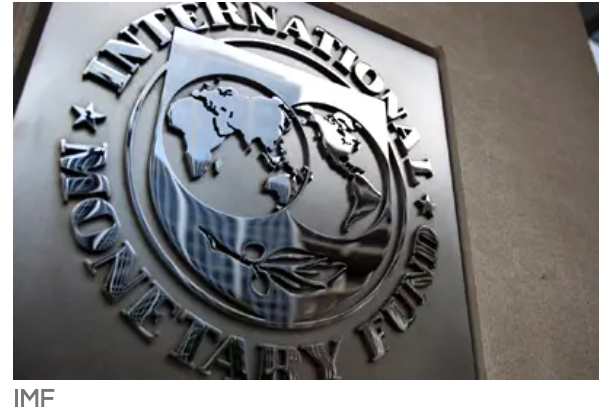The International Monetary Fund (IMF) Article IV Staff mission has ended with an advice that the federal government should raise the Value Added Tax (VAT) from its current level of 7.5 percent to 15 percent.
This was contained in its mission statement issued in Washington on Friday.
Missions are undertaken as part of regular (usually annual) consultations under Article IV of the IMF’s Articles of Agreement, in the context of a request to use IMF resources (borrowed from the IMF), as part of discussions of staff monitored programs, or as part of other staff monitoring of economic developments.
It’s also recommended a total removal of fuel subsidies, which it argued favoured the rich at the expense of ordinary Nigerians and address oil thefts head-on.
The recommendations
The mission recommended: “Adopt tax policy reforms. The mission advised the authorities to consider adjusting tax rates to levels comparable to the average in the Economic Community of West African States (ECOWAS) as compliance improves.
“This includes further increasing the VAT rate to 15 percent by 2027 in steps, while streamlining numerous VAT exemptions based on systemic reviews, increasing excise rates on alcoholic and tobacco products while broadening the base, and rationalizing tax incentives by streamlining tax expenditures based on comprehensive periodic.
“Remove fuel subsidies and address oil theft.
“As a near-term priority, the mission highlighted the urgent need to remove fuel subsidies fully and permanently, which disproportionately benefit the well-off, by mid-2023 as planned.
“The government should also prioritize addressing oil thefts and governance issues in the oil sector to restore production to pre-pandemic levels.
“Increase well-targeted social assistance. To mitigate food insecurity and cushion the impact of high inflation and fuel subsidy removal on the poor, the mission recommended increasing social spending by up to 1.7 percentage points of GDP during 2023-27 in well-targeted programs in coordination with the World Bank and other development partners
“Fiscal transparency is critical for a sound fiscal policy. Notwithstanding recent improvements, some gaps remain.
“While the authorities have published the annual financial reports of the state-owned Nigerian National Petroleum Company (NNPC) since 2019, uncertainties remain regarding the nature of tax write offs and fuel consumption volumes.
“The mission recommended a closer look at the nature of NNPC’s financial commitments to the government and the costing details of the fuel subsidy, including through a financial audit.
“Stronger cash management and better coordination among key public institutions is needed to increase the realism of budgetary forecasts and reduce reliance on central bank overdrafts.”
The mission welcomed measures taken by the Central Bank of Nigeria (CBN) to tighten liquidity and curb inflationary pressures through increasing the monetary policy rate (MPR) by a cumulative 400 basis points and raising the cash reserve ratio (CRR).
It advised the apex bank to further raise the MPR.
According to the mission, “Overall conditions remain accommodative—the MPR is below inflation, and financing provided to the budget and the CBN’s directed lending schemes continue to drive strong monetary expansion.
“Decisive and effective monetary policy tightening is a priority to prevent risks of de-anchoring of inflation expectations.
“Given the multiplicity of monetary policy tools, market segmentation and weak interest rate transmission, the mission recommended the following measures to effectively tighten the monetary policy stance: (i) fully sterilize the impact of CBN’s financing of fiscal deficits on money supply; (ii) stand ready to further increase the MPR to send a tightening signal; and (iii) continue phasing out CBN’s credit intervention programs, which expanded rapidly during the pandemic to support the economy.”
The mission welcomed progress in the securitization of the CBN’s existing stock of overdrafts and recommended speedy finalization.
It said that going forward, it would be important to limit reliance on CBN overdrafts for fiscal financing to the statutory limit of 5 percent of previous year’s revenues by pursuing fiscal consolidation, better budgetary planning and resorting to supplementary budgets in case of financing shortfalls.
CBN should stop FX market intervention
The staff also urged that in the medium term, the CBN should step back from its role as main FX intermediator, limiting interventions to smoothing market volatility and allowing banks to freely determine FX buy-sell rates.
Wind down AMCON
The mission advised to resolve weak smaller banks and proceed with the winding down of the public asset management company (AMCON) by end-2023.
Structural policies
Strengthen Agricultural Productivity and Address Corruption
Strengthening the performance of the agricultural sector, it noted, was key to job creation, food security, and social cohesion.
Address corruption
On corruption, the staff said, “Addressing corruption remains critical to stimulating investment.
“The mission welcomed recent measures to fight corruption and promote the rule of law and accountability through the passage of the Proceeds of Crimes and Whistleblower’s Act, and efforts to increase the rate of asset declarations by the Code of Conduct Bureau.
“However, Nigeria is still assessed to have widespread governance weaknesses and the mission was not able to assess progress in audits of the COVID-19 related emergency spending.
“The government should redouble its efforts to implement key aspects of the National Anti-Corruption Strategy (NACS), including measures to reduce bribery, improve prosecution and conviction rates for corruption cases, as well as the confiscation of related proceeds of crime.”
The Mission statement does not necessarily represent the position of the IMF, until it is presented to the Executive Board by the management and is adopted.







